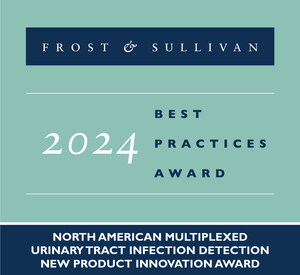SINGAPORE, June 24 /PRNewswire/ -- Regular blood screening conducted in hospitals for at-risk patients, particularly injecting drug users (IDUs), has expanded the patient base and enhanced prospects for the hepatitis C therapeutics market in Indonesia. Moreover, increasing health awareness in Indonesia has encouraged the population (mostly urban) to opt for annual physical examinations and regular blood screening that enable the detection of Hepatitis C.
(Logo: http://photos.prnewswire.com/prnh/20081117/FSLOGO)
(Logo: http://www.newscom.com/cgi-bin/prnh/20081117/FSLOGO)
New analysis from Frost & Sullivan (http://www.pharma.frost.com), Multi Client Study: Opportunities Assessment for the Hepatitis C Therapeutics Market in Indonesia, finds that the global hepatitis C treatment market earned revenues of $2.3 billion in 2007, and is expected to increase to approximately $4.5 billion by 2017 due to new drug launches occurring after 2010.
"Small molecule anti-virals with improved efficacy are poised to take the market forward," says Frost & Sullivan Vice President, Rhenu Bhuller. "Several strategies are being explored in clinical trials, including add-on therapy to the current standard of care, interferon replacement, and ribavirin replacement."
Refined versions of interferons, oral formulations of small molecule inhibitors, and the new drug class known as protease inhibitors are in the pipeline and represent the future of hepatitis C virus (HCV) treatment. Despite the initiatives undertaken, only 2 percent of those diagnosed are placed under treatment, primarily because of the lack of government reimbursement.
Treatment of hepatitis C is restrained by the high cost of medication for patients who do not have health insurance. While Indonesia offers healthcare coverage to its population, many of the poor people are unable to apply for the insurance. Those not entitled are expected to bear the cost themselves, which is approximately $1,000 per month.
The low rate of treatment and compliance is also caused by patients' fear of side effects associated with treatment. These include bone marrow depression, flu-like symptoms, neuropsychiatric disorders, and autoimmune syndromes. Besides, limited efficacy for those infected with genotype-1 strain and an inconvenient mode of administration has contributed to non-compliance.
Studies have shown that patients treated with combination therapy of the two drugs are more likely to reach sustained virological response than those treated with monotherapy. With this, more patients are likely to accept treatment, as there is a better chance for them to completely recover from Hepatitis C. In Indonesia, the standard treatment for HCV is Peg intron; Peg intron + Ribavirin; Pegasys; and Pegasys + Ribavirin.
Physicians interviewed agreed that patients respond better to combination therapy and recovery rates are higher for patients on Pegylated interferon (Peg intron or Pegasys) + Ribavirin. Additionally, most patients are HIV positive, making treatment more difficult, as the possibility of co-infection is higher among these patients.
Companies that offer treatments with improved efficacy and fewer side effects, combined with disease education can help overcome the challenges clouding the market landscape. Encouraging better compliance now will enhance the likelihood of future compliance, especially for improved treatments. Creating incentives for patients to stay on HCV treatment will improve the chances of patient compliance. In order to increase their HCV market share with newer drugs, companies must make sure that patients are aware of their disease status.
"Awareness programs are mostly centered in urban areas, with the aid of media such as television and internet as a source of information delivery," says Bhuller. "Outreach programs must target rural areas to stop the onslaught of the disease."
Creating marketing campaigns that highlight better efficacy, partnerships with governments to lower costs, but increase distribution, and broadening diagnosis efforts will increase market presence.
If you are interested in more information on this study, please send an e-mail to Nicklaus Au, Corporate Communications, at [email protected], with your full name, company name, title, telephone number, company e-mail address, company website, city, state and country.
Multi Client Study: Opportunities Assessment for the Hepatitis C Therapeutics Market in Indonesia is part of the Pharmaceuticals & Biotechnology Growth Partnership Services program, which also includes research in the following markets: Global Pharmaceuticals & Biotechnology and Global Healthcare. All research services included in subscriptions provide detailed market opportunities and industry trends that have been evaluated following extensive interviews with market participants.
About Frost & Sullivan
Frost & Sullivan, the Growth Partnership Company, enables clients to accelerate growth and achieve best-in-class positions in growth, innovation and leadership. The company's Growth Partnership Service provides the CEO and the CEO's Growth Team with disciplined research and best-practice models to drive the generation, evaluation, and implementation of powerful growth strategies. Frost & Sullivan leverages over 45 years of experience in partnering with Global 1000 companies, emerging businesses and the investment community from 40 offices on six continents. To join our Growth Partnership, please visit http://www.frost.com.
Multi Client Study: Opportunities Assessment for the Hepatitis C Therapeutics Market in Indonesia
P387
Contact: |
|
Nicklaus Au |
|
Corporate Communications – Asia Pacific |
|
P: +603 6204 5836 |
|
F: +603 6201 7402 |
|
Donna Jeremiah |
|
Corporate Communications – Asia Pacific |
|
P: +603 6204 5832 |
|
F: +603 6201 7402 |
|
SOURCE Frost & Sullivan
WANT YOUR COMPANY'S NEWS FEATURED ON PRNEWSWIRE.COM?
Newsrooms &
Influencers
Digital Media
Outlets
Journalists
Opted In






Share this article